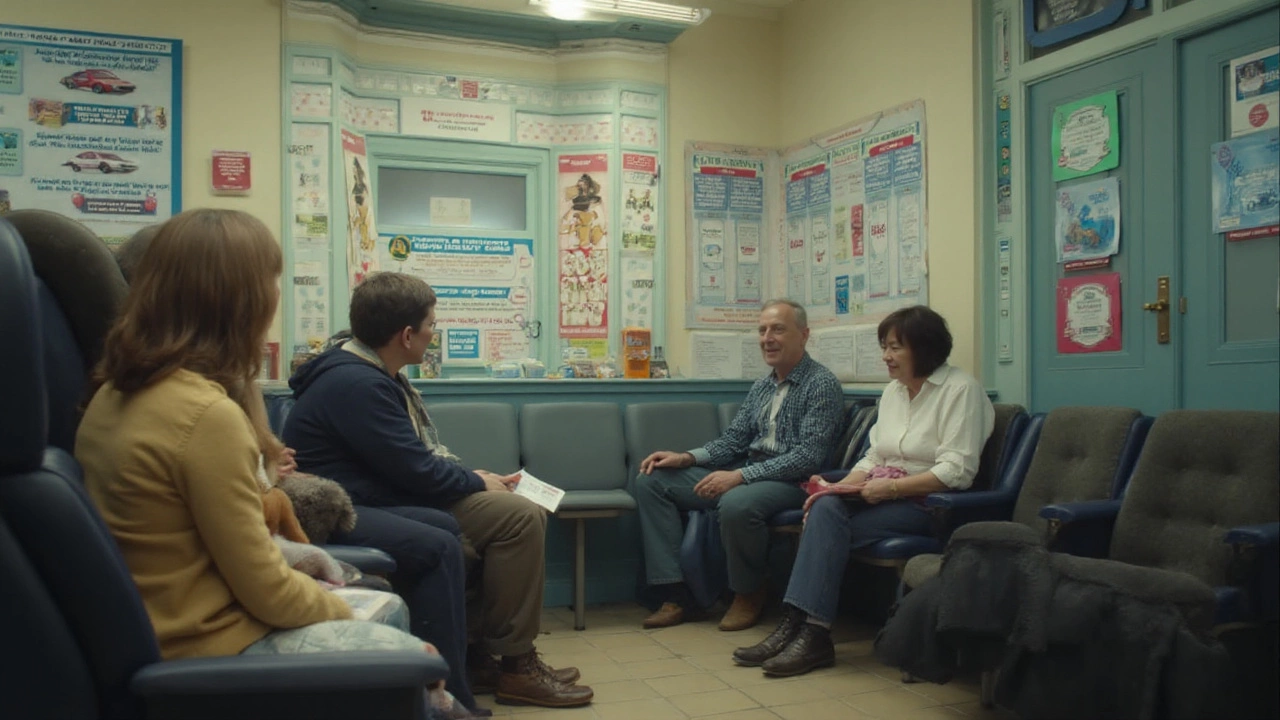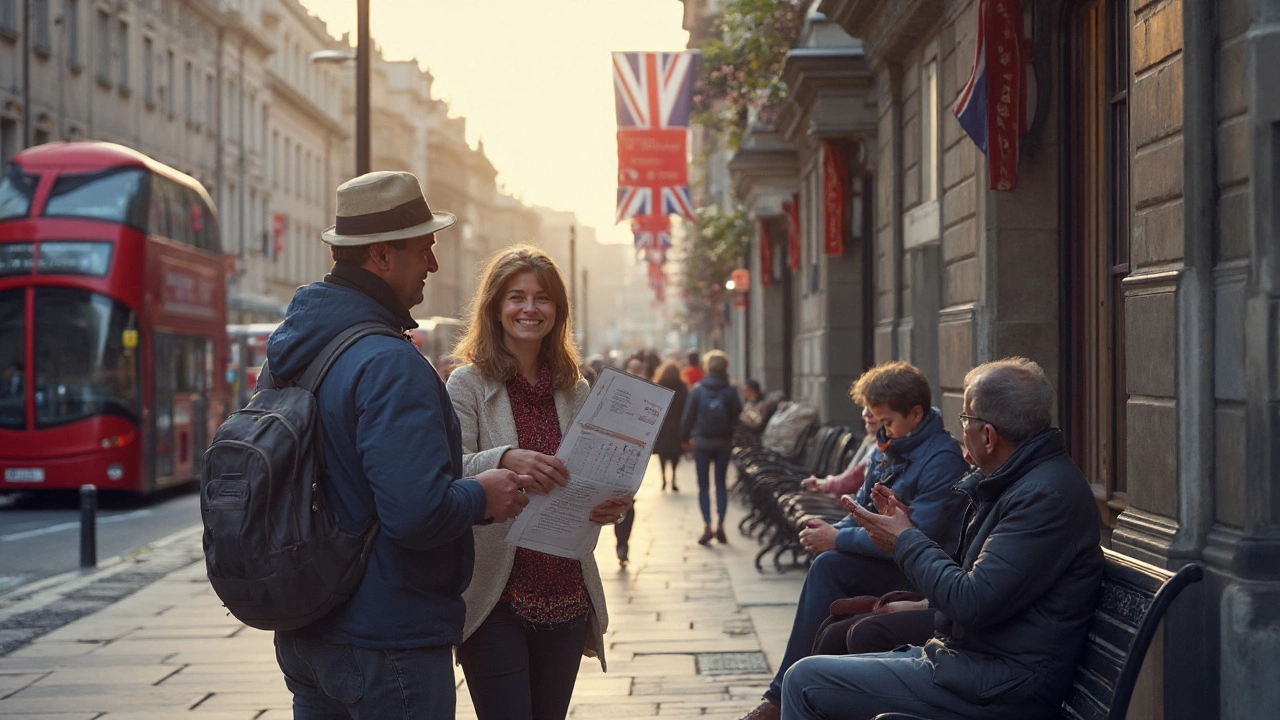
Picture this: you’ve saved for the trip of a lifetime to the UK, suitcases packed, plans mapped out from London to the Highlands. But what if, out of nowhere, you twist an ankle on a busy street, wake up with severe stomach cramps, or suddenly need medication? Can you actually get medical treatment in the UK when you’re holding just a tourist visa? It’s not as simple as popping into an NHS clinic and walking out with a prescription. The rules are strict, the bills can sting, and there’s a maze of exceptions and hidden doorways. People assume the NHS is free for all, but that’s not the case. I’ll take you straight into the nitty gritty—what you can expect, what it’ll cost, and ways to stay clear of disasters while exploring the UK skies (and A&E rooms).
Where Tourists Stand with UK Healthcare: NHS Rules, Private Options, and What’s Off-Limits
Let’s get clear on the basics. The NHS is famous for its public care, but it’s a system built for residents—paying taxes, holding settled status, or at least paying the immigration health surcharge (IHS). Tourists, sorry, you don’t have an NHS golden ticket. If you show up at a hospital or GP surgery with a standard visitor visa, you’ll usually pay just like you would at a private clinic, and sometimes, you’ll pay more. Most NHS healthcare services are not free to tourists, with a few crucial exceptions.
If you break a leg in Piccadilly Circus or have a medical emergency, don’t panic—emergency treatment in A&E (Accident & Emergency) rooms is offered to everyone, even on a tourist visa. But here’s where it gets tricky: the help stops at the A&E door. The moment you’re admitted as an inpatient, or need ongoing tests, surgery, or aftercare, the NHS starts billing.
Here’s how the NHS splits the rules for tourists:
- Emergency treatment at A&E: Free for everyone, no questions asked (except for follow-up care).
- GP consultations: Up to the surgery if they accept you, but almost always, you’ll have to pay.
- Hospital admissions or non-urgent treatment: Charged at full NHS overseas patient rates. Forget about free specialist care, operations, maternity, or cancer treatment unless your country has a deal with the UK.
- Prescriptions: Not free unless you qualify for exemption (rare on a tourist visa). Pharmacies also charge for almost everything, even basic painkillers.
The UK does have some bilateral healthcare agreements with countries such as Australia and New Zealand, but most visitors are not covered. EU visitors can use the EHIC/GHIC card for some treatment, but post-Brexit, this is way more limited than before. Always check the latest details before you travel, as these rules change pretty often.
Private clinics are a different story. Anyone can pay to see a private doctor, and many visitors do this for convenience or access—especially those needing ongoing medication, quick tests, or specialist advice. London, Manchester, and Edinburgh are full of private walk-in clinics ready for tourists, at prices starting from £70–£200 for a basic appointment. Fancy a dermatologist or scan? Add a few hundred pounds more. Dental emergencies? Also, expect to pay upfront and on the spot.
Got a chronic condition and worried about flare-ups? Pack enough medication for your stay, and bring doctor’s letters. UK pharmacies can be strict with prescriptions and may refuse to fill foreign ones, so coming prepared is your best defense.

How Much Does Treatment Cost? Real Fees, Payment, and Insurance Tips for Tourists
Reading NHS leaflets about charges is like trying to solve a Rubik’s Cube blindfolded—the fees aren’t just high, they’re complicated. Here’s the truth: as a tourist, the NHS will charge you as an “overseas visitor.” For most hospital care, this means 150% of the standard NHS cost. Let’s say a British resident pays £300 for a procedure, you’ll be billed £450 for the same thing. Ambulance rides, blood tests, imaging (think MRI or X-ray), specialist clinics—they all add up fast.
Check out this real-world breakdown of likely costs as a tourist in the UK:
| Service | Estimated Cost (Tourist/Private) |
|---|---|
| Basic GP consultation (private) | £80–£150 |
| Emergency A&E care | Free (for initial assessment only) |
| Outpatient specialist (private/NHS billed) | £200–£400 |
| Standard hospital admission (overnight) | £800–£1500/night |
| MRI scan | £500–£1000 |
| Routine blood tests | £80–£250 |
| Prescription medication (per item) | £9.65 (NHS), £20–£50 (private) |
| Dental emergency (private) | £90–£250 |
Plus, the NHS expects payment upfront, or you may be told to make arrangements before you even get treated—especially for anything scheduled or non-urgent. Hospitals and clinics are quick to chase debts, and ignoring bills can get you flagged by UK immigration. Not a souvenir anyone wants.
So what about travel insurance? Here’s the golden rule: never arrive in the UK without comprehensive cover. Cheap insurance is tempting, but read the small print for exclusions around pre-existing conditions, extreme sports, and chronic problems. Many tourists discover too late that their basic policy covers only emergencies, and not things like prescription refills, check-ups, or delayed flights due to illness. If you’re from North America or Asia, check if your bank or employer’s plan includes emergency medical evacuation—you do not want to be stuck with a six-figure bill for air ambulance transport back home.
If you’re planning elective surgery or advanced dental work as a “medical tourist,” UK clinics expect full payment up front, proof of your ability to settle the bill, and sometimes confirmation from your insurer before booking. Always get written estimates before you agree to anything, and beware of hidden extras for aftercare or follow-up appointments.
Here’s a quick list of tips for students and tourists:
- Always carry proof of your travel insurance and emergency contacts.
- Keep medical letters, translated prescriptions, and doctor’s notes with you.
- If you need regular medication, bring at least two weeks’ extra, plus packaging/leaflets to prove authenticity.
- Use the NHS 111 helpline (free) to get non-emergency advice on symptoms or clinics near you.
- Don’t wait for a small problem to become an emergency; get professional help early, even if it’s private.
- Ask your hotel or friends for local clinic recommendations—sometimes there are smaller practices that offer deals for international visitors.

Staying Healthy and Secure: Best Practices, Surprising Loopholes, and Real-World Pitfalls
Getting sick or injured abroad is a nightmare, but the right prep can turn a disaster into just a hiccup. The UK is incredibly safe and clean by international standards, but accidents, food poisoning, and sudden viruses can hit anyone. Many visitors are shocked by how strict the NHS can be—and how much the UK expects tourists to take care of themselves. There are no waivers or charity clinics like in some countries. If you arrive unprepared, you’ll be on the hook for every penny.
The best way to avoid trouble? Prevention and planning beats cure every time. Start with research: before you even book your ticket, double-check the UK government’s official visitor health page. Print the current rules, because NHS criteria get updated and what was free in 2023 might not be in 2025. If you have a disability or special medical needs, email clinics ahead of time—they often have arrangements for international patients but need advance notice.
It’s easy to get caught out by the rules for children and pregnancy. If you’re pregnant and visiting the UK, be ready—maternity care is almost never free unless you’re from a reciprocal country. Birthing in a British hospital as a tourist can cost over £7,000. For minors, basic emergency care is given, but ongoing treatments for chronic issues or rare illnesses are not.
Don’t count on loopholes, like using a friend’s address or borrowing a resident’s NHS number. All reputable clinics check IDs, and fraud can land you with a permanent ban from the UK. Instead, check if your country has a reciprocal healthcare deal (list changes often), or if you’re eligible for a GHIC card (for EU/EEA residents). Still, these only cover urgent necessary care, not elective procedures or aftercare in most cases.
Beware of assumptions about UK pharmacies. Over-the-counter drugs are limited, and pharmacists are strict about what they can dispense without a UK prescription. If you need something rare or controlled, you could be turned away—bring enough and have documentation ready.
Need mental health support? The NHS does offer emergency hotlines for those in crisis, but counseling, psychiatry, and routine prescriptions will be billed, and there are often long waits, even for residents. It’s smart to arrange online support or medication through providers in your own country before arrival.
For anyone with medical allergies or history of severe illness—write out your conditions, allergies, key meds, and emergency numbers in English. Save them on your phone and have a printed copy in your wallet (doctors in the UK rely on clear, written info from patients, since foreign medical records can be tricky to access).
On a brighter note, some tourists have discovered community clinics, urgent care centers, or university health services that are less overloaded than big NHS hospitals and may offer same-day appointments if you pay cash. While the prices are still steep, these can be a lifesaver if you need non-emergency help fast and want to avoid the long queues at busy city hospitals.
If you do need regular care in the UK—for example, extended stays or recurring visits—consider finding a private patient advocate or medical concierge service. Yes, these exist, and they can help you get appointments, quotes, and even liaise with doctors.
The myth about the NHS as free-for-all just isn’t true if you’re on a tourist visa. Medical treatment in the UK is high in quality, but, for non-residents, also high in price—so smart travelers do the work before they land, not after. Stay wise, stay healthy, and remember: in the world of travel and medicine, knowing the rules is just as important as knowing your way around Buckingham Palace.